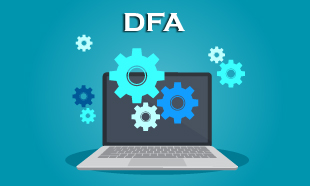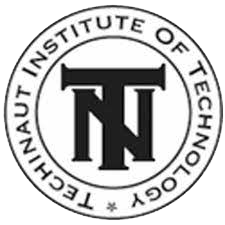1
The Diploma in Financial Application (DFA) course offered by Digital Binary Computer Institute, a Techinaut Institute of Technology franchise in …
The Diploma in Financial Application (DFA) course offered by Digital Binary Computer Institute, a Techinaut Institute of Technology franchise in Almora, Uttarakhand, is designed to provide students with essential skills and knowledge in financial management using computer applications. This six-month program covers various topics, including computer basics, financial software, and taxation principles. This article explores the course's objectives, curriculum structure, key sections, and the significance of acquiring DFA skills in today's financial landscape.
1. INTRODUCTION:
In today's digital age, proficiency in financial management coupled with computer literacy is crucial for success in various industries. Recognizing this demand, Digital Binary Computer Institute offers the Diploma in Financial Application (DFA) course. As a Techinaut Institute of Technology franchise, it ensures high-quality education and practical training for students in Almora, Uttarakhand.
2. OBJECTIVES OF THE COURSE:
The primary objective of the Diploma in Financial Application (DFA) course is to equip students with the necessary skills and knowledge to manage financial tasks using computer applications effectively. The course aims to achieve the following objectives:
- Provide a comprehensive understanding of computer basics and financial software applications.
- Familiarize students with popular financial software such as Tally for accounting and payroll management.
- Develop proficiency in using spreadsheet packages for financial analysis and reporting.
- Introduce students to taxation principles, budgeting techniques, and inventory management.
- Prepare students for entry-level positions in finance and accounting roles in various industries.
3. CURRICULUM STRUCTURE:
The Digital Binary Computer Institute DFA course is structured into multiple sections, each focusing on specific aspects of financial applications and related topics. The following are the key sections covered in the six-month duration course: 3.1. Basics of Computer
- Introduction to computers and their components
- Basic computer operations and terminology
- Understanding hardware, software, and peripheral devices
- Recognizing the importance of computers in financial management
- Ethical considerations in computer usage in financial applications
- Impact of technology on financial processes
- Introduction to word processing software for document creation and formatting
- Using advanced features for efficient document management
- Overview of spreadsheet software for financial analysis and reporting
- Data entry, manipulation, and visualization using spreadsheets
- Formulas, functions, and macros for financial modelling
- Introduction to presentation software for creating financial presentations
- Designing and delivering effective presentations using multimedia elements
- Understanding the basics of the Internet and its applications in finance
- Navigating financial websites and online resources for information retrieval
- Basics of electronic mail (e-mail) communication for professional correspondence
- E-mail protocols, addressing, and management techniques
- Understanding Tally software and its features for accounting and financial management
- Installation, configuration, and navigation through the Tally interface
- Managing user accounts and access permissions in Tally
- Setting up security features and backup procedures
- Creating and managing groups, ledgers, and vouchers in Tally
- Recording transactions and maintaining accounts accurately
- Understanding cost centres and cost categories in Tally
- Allocating expenses and analyzing cost centre-wise performance
- Basics of budgeting in Tally for financial planning and control
- Creating and managing budgets to track expenses and revenues
- Understanding various types of vouchers in Tally and their significance
- Recording transactions accurately using vouchers in Tally
- Managing multiple currencies and foreign exchange transactions in Tally
- Handling currency conversion and exchange rate adjustments
- Managing inventory in Tally for stock control and valuation
- Recording stock transactions and managing inventory levels
- Detailed understanding of voucher entry in Tally for accurate accounting
- Recording sales, purchases, receipts, and payments using vouchers
- Generating reports and financial statements in Tally for decision-making
- Customizing reports according to business requirements
- Overview of taxation principles and regulations
- Understanding tax laws and computation in Tally
- Basics of payroll management and processing
- Configuring payroll in Tally and processing payroll transactions
3. SIGNIFICANCE OF DFA COURSE:
The Diploma in Financial Application (DFA) course offered by Digital Binary Computer Institute holds significant importance in preparing students for careers in finance and accounting. Acquiring DFA skills offers numerous benefits, including:
- Enhanced employability in various industries requiring financial management expertise.
- Ability to efficiently manage financial tasks using computer applications such as Tally.
- Proficiency in financial analysis, reporting, and budgeting using spreadsheet packages.
- Preparation for industry-recognized certifications in financial software and taxation.
- Improved career prospects and advancement opportunities in finance and accounting roles.
CONCLUSION:
The Diploma in Financial Application (DFA) course at Digital Binary Computer Institute is a comprehensive training program for individuals aspiring to excel in financial management using computer applications. The course equips students with the necessary skills to succeed in today's competitive job market by providing a structured curriculum covering computer basics, financial software, and taxation principles. With its emphasis on practical training and hands-on experience, the DFA course ensures that students are well-prepared to meet the demands of the finance and accounting industry in Almora, Uttarakhand, and beyond.
Lectures = 130 HRS
Practical/Tutorials = 130 HRS
Total = 260 HRS


